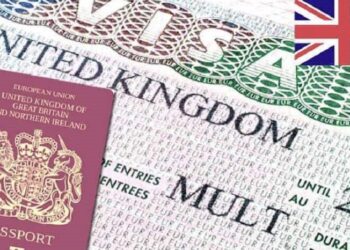The United Kingdom has eased its travel restrictions on Kaduna State, Nigeria, recognizing what it described as improvements in the region’s security landscape.
The Foreign, Commonwealth and Development Office (FCDO) announced the reclassification of the state from “Red” to “Amber,” allowing British citizens to travel more freely to the area.
The shift was disclosed by FCDO Development Director Cynthia Rowe during the signing of the Kaduna Mutual Accountability Framework (KaMAF) with Governor Uba Sani in Kaduna.
The framework is designed to strengthen collaboration between the UK and the state government on development, governance, and security priorities.
Rowe said Kaduna had been under the UK’s “Red” category since 2022, a designation that effectively discouraged British citizens from traveling to the state due to high risks of insecurity. “The reclassification to ‘Amber’ reflects the progress made under Governor Sani’s leadership in addressing longstanding security challenges,” she said.
Kaduna, one of northern Nigeria’s key commercial and political hubs, has faced years of violent conflict, including banditry, kidnappings, and clashes between communities. These challenges prompted foreign governments to issue strict travel warnings. However, the easing of the UK advisory signals growing confidence in the state’s stability and its ability to attract international engagement.
More Insights
Governor Sani described the UK government’s decision as a “clear endorsement” of his administration’s peace and security initiatives. “This acknowledgement is a strong testament to the impact of our policies and a signal to investors that Kaduna is safe for business,” he said.
Sani has prioritized security reforms since taking office, including bolstering cooperation with security agencies, expanding community-based peacebuilding initiatives, and strengthening surveillance across rural areas. His administration has also focused on attracting investment into sectors such as agriculture, infrastructure, and education, arguing that development is critical to long-term stability.
Reports say the UK’s reclassification could carry symbolic and practical weight. Beyond easing travel for British citizens, the move could encourage other foreign missions and investors to reconsider their risk assessments of Kaduna and other northern states. It may also influence broader conversations around Nigeria’s investment climate, which has been undermined by persistent security concerns in several regions.
The announcement comes as Nigeria works to project a more secure image to international partners, particularly under President Bola Tinubu’s economic reform agenda. Kaduna, given its central location and resources, has been positioned as a potential hub for foreign investment if stability is maintained.




















